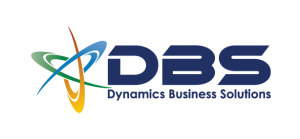The movement of organizations to a cloud environment has increased enormously over the past few years and with the help of Azure information protection, you can actually help implement different strategies. These will not just allow your organizations to grow, but at the same time, will enable you to control and help secure documents, email, and other important data while you are sharing anything outside the company. Also, it allows you to secure your information in a way that you can embed labels on your data based on their grades of sensitivity. It allows you to protect your apps, data, and infrastructure effectively without any hassle. Since you get to access various kinds of enlightened apps, you have the provision to create a boundary so that you can protect those sets of information ethically.
The main motif of establishing an Azure information protection, you will be able to pose an implicit trust within the defined boundary and thus, enable access of the data only based on the identities. Since you are going to share various information not just among your team members, but also among your clients and also your managers, you ought to be very cautious about the flow of the information. Therefore, Azure Information Protection operates as a framework so that you can easily distinguish about the sensitivity of your data. This framework basically operates between the products and their integrated capabilities to help you protect all your sensitive data seamlessly. As you are going to store and secure your data, you will also have the provision to classify and segregate them and thus, use it accordingly based on your business requirements. .
What is so special about Azure Information Protection?
Ever since content classification and its security has become a matter of concern for all the organizations, more and more people are actually thriving to monitor the way both data information are collected, recorded and further stored in the cloud environment. As a result, the Azure Information Protection is coming up with new provisions that are related to the cybersecurity and data protection theories. Indeed, this has been helping the way documents and emails are classified and protected on the cloud. The AIP is a cloud based solution that classifies both emails and documents on both Outlook and SharePoint with the help of labels. This does not only set a limit to the usage of the documents but also define the users’ access on the same.
Advantages of Azure Information Protection
With the defining of proper rules and conditions, you can actually pose a limitation on the access of the users to certain data sets within the organization as well as among the outside stake holders. Here are a few advantages of the tool listed underneath:
- Protection for your sensitive information from anywhere and at anytime
- Control to secure email, documents, and sensitive data
- Easy classification of data through embedded labels
- Configuring the policies based on their sensitivity
- Protection of data irrespective of where it is stored
- Adding better control and visibility
- Easy to use with in-product notifications to help the users decide smartly
- A secure collaboration among your partners and customers
Bottom line:
Not just that AIP allows access of the users to any document, but at the same time, it gives you the flexibility of revoking the access as and when required. Indeed, this is one of the best tools when it comes to securing your business data.

